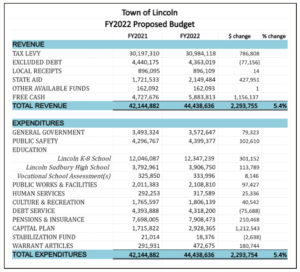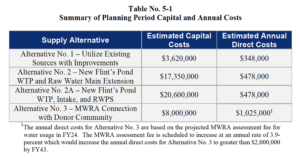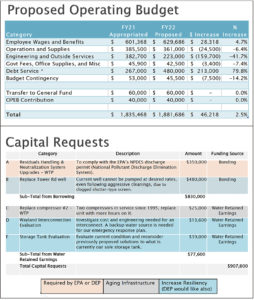 The Finance Committee is hosting a budget Q&A session on Zoom on Tuesday, May 11 at 7:30 p.m., an hour after a presentation by the Water Department (see related story).
The Finance Committee is hosting a budget Q&A session on Zoom on Tuesday, May 11 at 7:30 p.m., an hour after a presentation by the Water Department (see related story).
As with other town groups appearing at Town Meeting on May 15, the FinCom asks residents to offer questions and feedback beforehand to keep the May 15 meeting as short as possible. The Zoom Q&A session will not include the full budget hearing presentation, which took place on April 27 and can be viewed on the town’s video meeting website or on YouTube, which allows accelerated playback. However, the May 11 session will be recorded and posted.
The FinCom projects that both revenue and expenditures will increase by 5.4% overall (see chart).
Additional resources:
- Zoom link for the FinCom session (meeting ID: 849 2072 7318; password: fincom).
- Financial report and Town Meeting warrant (proposed budget amounts for each department are listed on page 54)











